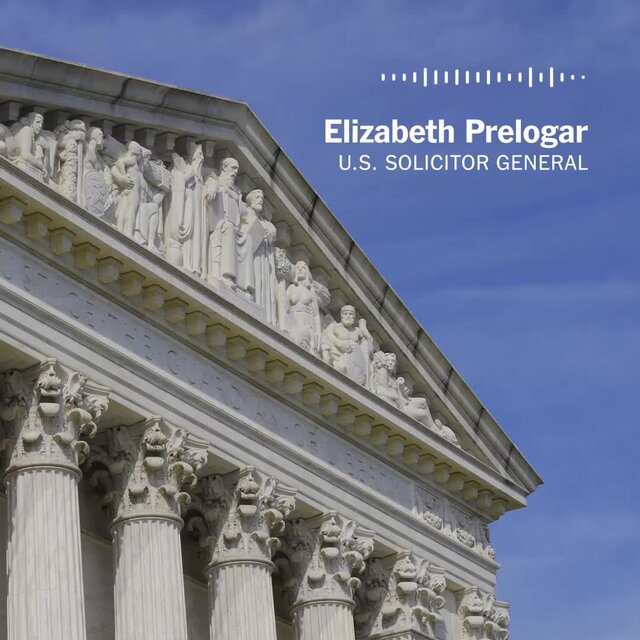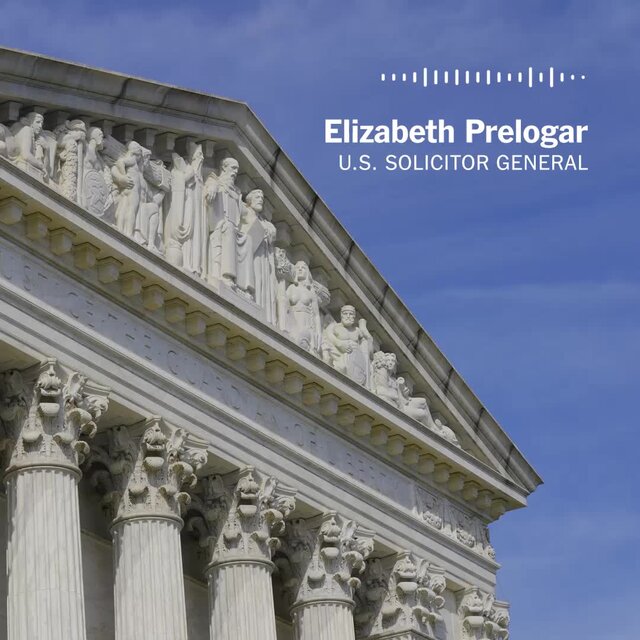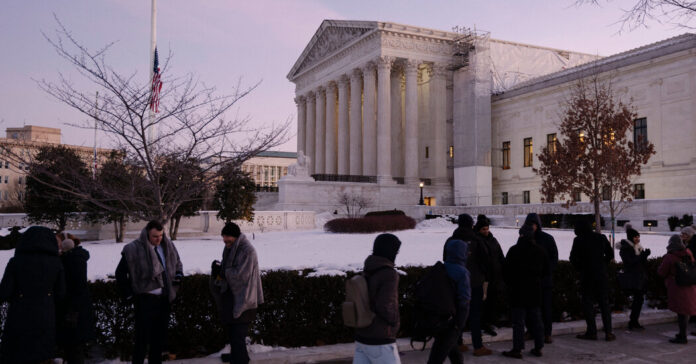Breaking News: The Future of Social Media Hangouts Hangs in the Balance
In a landmark decision that could have far-reaching implications for the tech industry, the Supreme Court is set to weigh in on a high-stakes case regarding the future of TikTok in the United States. The court’s ruling on whether to uphold a ban on the popular social media app, which has been a hotbed of controversy over national security concerns, could have significant consequences for the billions of users who have come to rely on the platform for entertainment, self-expression, and connection.

Breaking Down the Supreme Court’s Ruling on the Potential TikTok Ban
Background and Context
The Law in Question
The law in question, enacted by Congress, aims to address concerns surrounding TikTok’s ties to China and the potential national security risks associated with it. The law requires ByteDance, TikTok’s parent company, to sell the app by January 19, effectively banning it in the United States if the sale is not completed. The law’s key provisions include the divestment of ByteDance’s ownership in TikTok and the prohibition of any future transactions between the two companies.
The concerns surrounding TikTok’s ties to China are rooted in the country’s history of using technology to gather intelligence and exert influence over foreign governments. The US government has long been wary of China’s intentions, and the rise of TikTok has only added to these concerns. The app’s popularity, particularly among younger generations, has raised fears that the Chinese government could use it to manipulate public opinion and gather sensitive information on US citizens.
Historical Context
The concerns surrounding TikTok’s ties to China are not new. In 2020, the US government launched an investigation into ByteDance’s acquisition of Musical.ly, a social media app popular among teenagers. The investigation was sparked by concerns that the acquisition could give the Chinese government access to sensitive information on US citizens.
In response to these concerns, TikTok has repeatedly denied any wrongdoing, stating that it stores its data in the United States and Singapore, and that it does not share any information with the Chinese government. However, these assurances have done little to alleviate the concerns of US lawmakers, who have continued to push for greater scrutiny of the app.
Stakeholders Involved
The stakeholders involved in the TikTok saga include the app itself, its parent company ByteDance, the US government, and the American public. TikTok has been at the center of the controversy, with its popularity and ties to China making it a focal point of the debate. ByteDance, as TikTok’s parent company, has also been heavily involved, with its ownership of the app being a key point of contention.
The US government has been a key player in the saga, with lawmakers pushing for greater scrutiny of the app and its ties to China. The American public has also been involved, with many users expressing concerns about the app’s safety and security.

Supreme Court Ruling and Implications
Key Factors Leading to the Ruling
The Supreme Court’s ruling on the potential TikTok ban was influenced by a number of key factors. During oral arguments, justices questioned lawyers for both TikTok and the US government, raising concerns about the app’s ties to China and the potential national security risks associated with it.
Justices Clarence Thomas and Chief Justice John G. Roberts Jr. were among the first to question lawyers for TikTok, suggesting that the app’s ties to China were a major concern. Justice Brett M. Kavanaugh also raised concerns about the potential for the Chinese government to use TikTok to gather sensitive information on US citizens.
Lawyers for TikTok and its users argued that the law was unconstitutional, violating the First Amendment and the right to free speech. However, these arguments were met with skepticism by the justices, who seemed to favor the government’s position.

Potential Impact on Free Speech
The Supreme Court’s ruling on the potential TikTok ban has significant implications for free speech. The ruling suggests that the government has the authority to regulate social media platforms, particularly those with ties to foreign governments.
This has raised concerns among some experts, who argue that the ruling could have a chilling effect on free speech. By giving the government greater authority to regulate social media platforms, the ruling could lead to increased censorship and a reduction in the diversity of online content.
National Security and Foreign Influence
The Supreme Court’s ruling on the potential TikTok ban also has significant implications for national security and foreign influence. The ruling suggests that the government has the authority to take action to protect national security, even if it means restricting the activities of social media platforms.
This has raised concerns among some experts, who argue that the ruling could lead to increased government surveillance and censorship. By giving the government greater authority to regulate social media platforms, the ruling could lead to a reduction in online freedom and a greater risk of government overreach.
Next Steps and Practical Aspects
ByteDance’s Deadline
ByteDance, TikTok’s parent company, has until January 19 to divest from the app. If the company fails to meet this deadline, the app will be effectively banned in the United States.
The consequences of failure to comply with the deadline are significant. If ByteDance is unable to find a buyer for TikTok, the app will be forced to shut down in the United States, leaving millions of users without access to the platform.
Potential Rescues for TikTok
There is a chance that President-elect Donald J. Trump will try to rescue TikTok, potentially by intervening in the sale process or by issuing an executive order to block the ban.
However, the outcome of any such attempt is uncertain. The Supreme Court’s ruling has made it clear that the government has the authority to regulate social media platforms, and it is unclear whether the President-elect will be able to override this authority.
Enforcement and Regulation
The federal government will be responsible for enforcing the law and regulating TikTok’s activities. This will likely involve working with state and local authorities to ensure compliance with the law.
The implications of the ruling for the broader social media landscape are significant. The ruling suggests that the government has the authority to regulate social media platforms, and this could lead to increased scrutiny of other platforms with ties to foreign governments.
Reactions and Analysis
Reaction from TikTok and Its Users
TikTok and its users have reacted with disappointment and concern to the Supreme Court’s ruling. The app has released a statement expressing its disappointment with the ruling and its commitment to protecting its users’ rights.
Users have also taken to social media to express their concerns, with many arguing that the ruling is an attack on free speech and online freedom.
Government Response
The government has responded to the ruling by reaffirming its commitment to protecting national security and regulating social media platforms.
President Biden has released a statement expressing his support for the ruling and his commitment to ensuring that social media platforms are regulated in a way that protects national security and promotes online safety.
Expert Analysis
Experts have weighed in on the implications of the ruling, with many arguing that it has significant implications for free speech and online freedom.
Some experts have argued that the ruling is a necessary step to protect national security, while others have argued that it is an overreach of government authority.
The ruling has also been seen as a major blow to TikTok’s plans to expand its presence in the United States. The app had been looking to increase its user base and expand its advertising business, but the ruling has put these plans on hold.
Conclusion
In conclusion, the Supreme Court’s ruling on a potential TikTok ban has sent shockwaves across the nation, sparking intense debate and discussion about the future of social media regulation. The article delves into the key points and main arguments surrounding the case, including the government’s concerns over national security and data privacy, as well as TikTok’s defense of its platform and user base. The main arguments revolve around the balance between free speech and national security, with the court’s decision having significant implications for the tech industry, online censorship, and the rights of American citizens. The significance of this topic cannot be overstated, as it has far-reaching consequences for the way we interact online, the information we consume, and the boundaries of government oversight.
The implications of the Supreme Court’s ruling are multifaceted and complex, with potential effects on the broader tech industry, global trade, and international relations. As the digital landscape continues to evolve, the need for clear guidelines and regulations on social media platforms has become increasingly pressing. The court’s decision will likely have a ripple effect, influencing the development of future social media platforms, the way companies collect and store user data, and the role of government in regulating online activity. Looking ahead, it is essential to consider the potential consequences of a TikTok ban, including the impact on small businesses, content creators, and the millions of users who rely on the platform for entertainment, education, and community building. As the situation continues to unfold, one thing is certain: the future of social media regulation will be shaped by the ongoing tension between individual freedoms and national security concerns.
As we move forward in this uncharted territory, it is crucial to remain vigilant and engaged, recognizing the profound impact that the Supreme Court’s ruling will have on our online lives. The decision will undoubtedly set a precedent for future cases, influencing the trajectory of social media regulation and the boundaries of government control. Ultimately, the question remains: what does the future hold for TikTok, its users, and the broader social media landscape? As we navigate this uncertain terrain, we must remember that the outcome of this case will not only shape the future of social media but also reflect our values as a society, particularly when it comes to the delicate balance between freedom of expression and national security. The clock is ticking, and the world is watching – will we prioritize the free flow of information and ideas, or will we succumb to the pressures of a rapidly changing world, sacrificing our online freedoms in the
